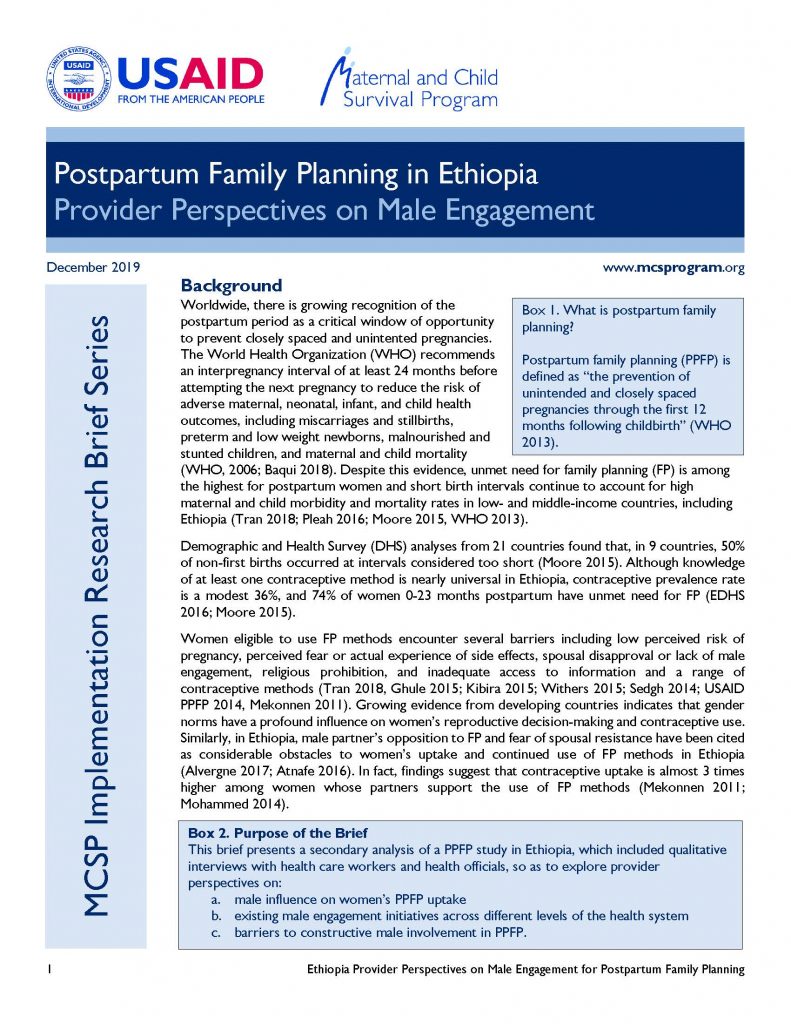
This implementation research brief presents a secondary analysis of a postpartum family planning (PPFP) study in Ethiopia, which included qualitative interviews with health care workers and health officials so as to explore provider perspectives on: Male influence on women’s PPFP uptake; Existing male engagement initiatives across different levels of the health system; and Barriers to […]
Read More…
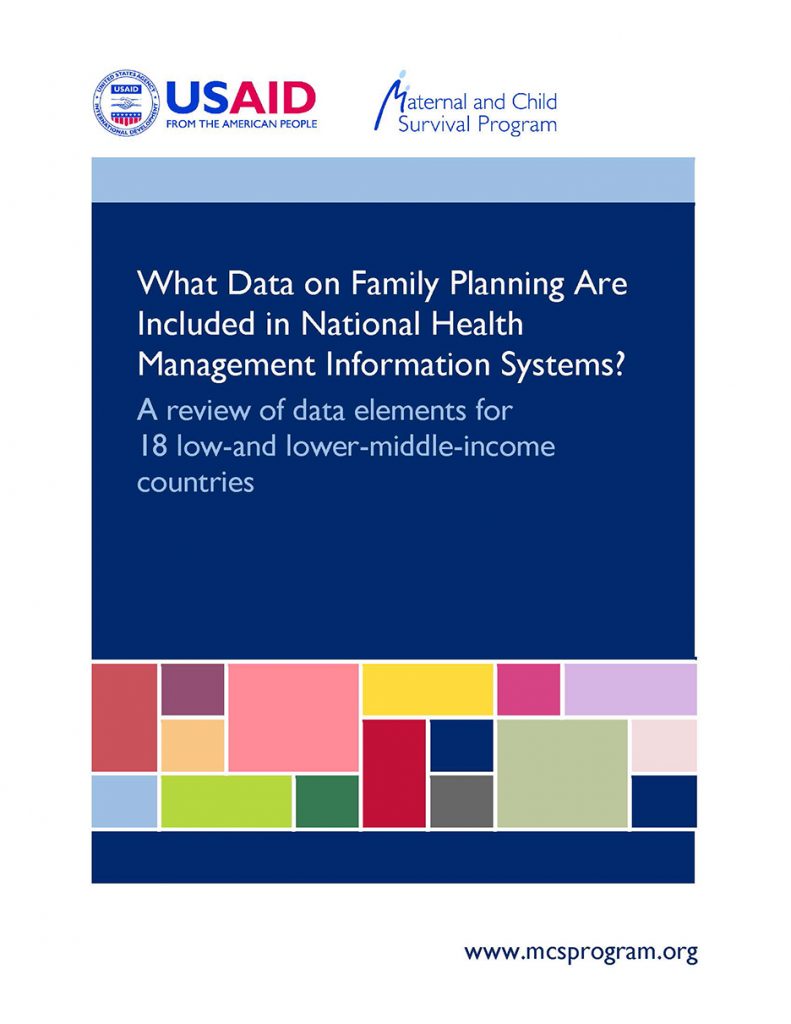
In 2018, MCSP completed a review of health management information systems (HMIS) tools in 24 countries to identify the key maternal and newborn health data elements that public health facilities collect and report. This review expands on that work, using the same methodology to identify data elements related to family planning that are available in […]
Read More…
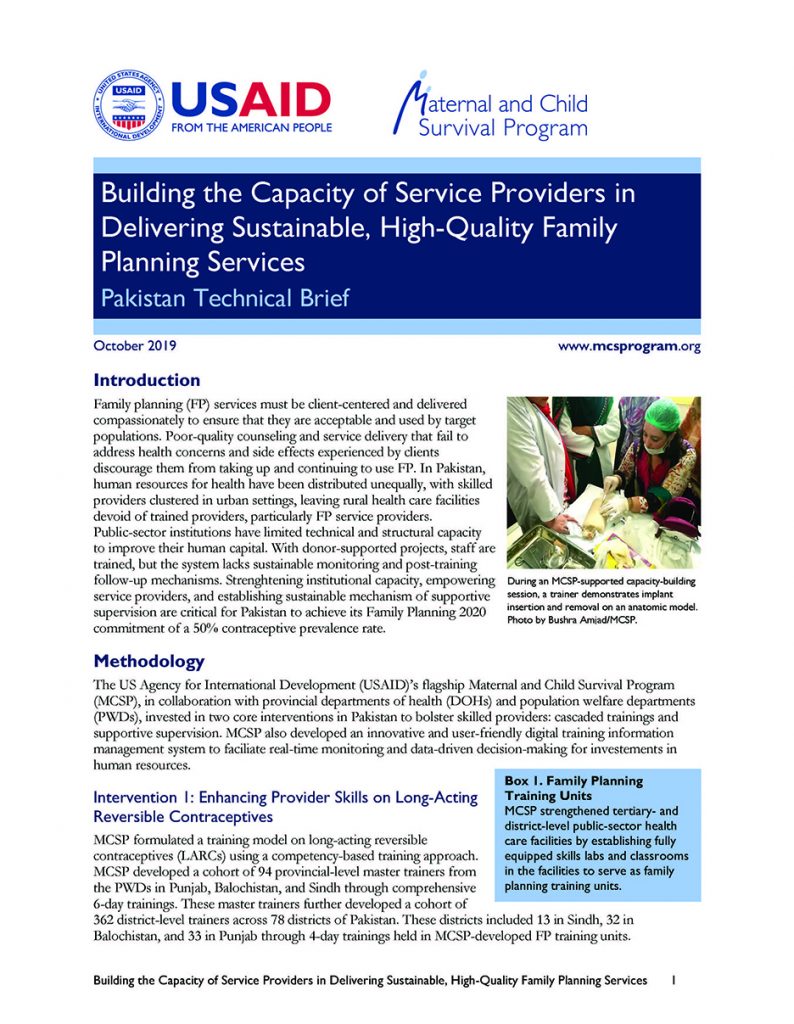
MCSP, in collaboration with provincial departments of health (DOHs) and population welfare departments (PWDs), invested in two core interventions in Pakistan to bolster skilled providers: cascaded trainings and supportive supervision. MCSP also developed an innovative and user-friendly digital training information management system to faciliate real-time monitoring and data-driven decision-making for investements in human resources. […]
Read More…
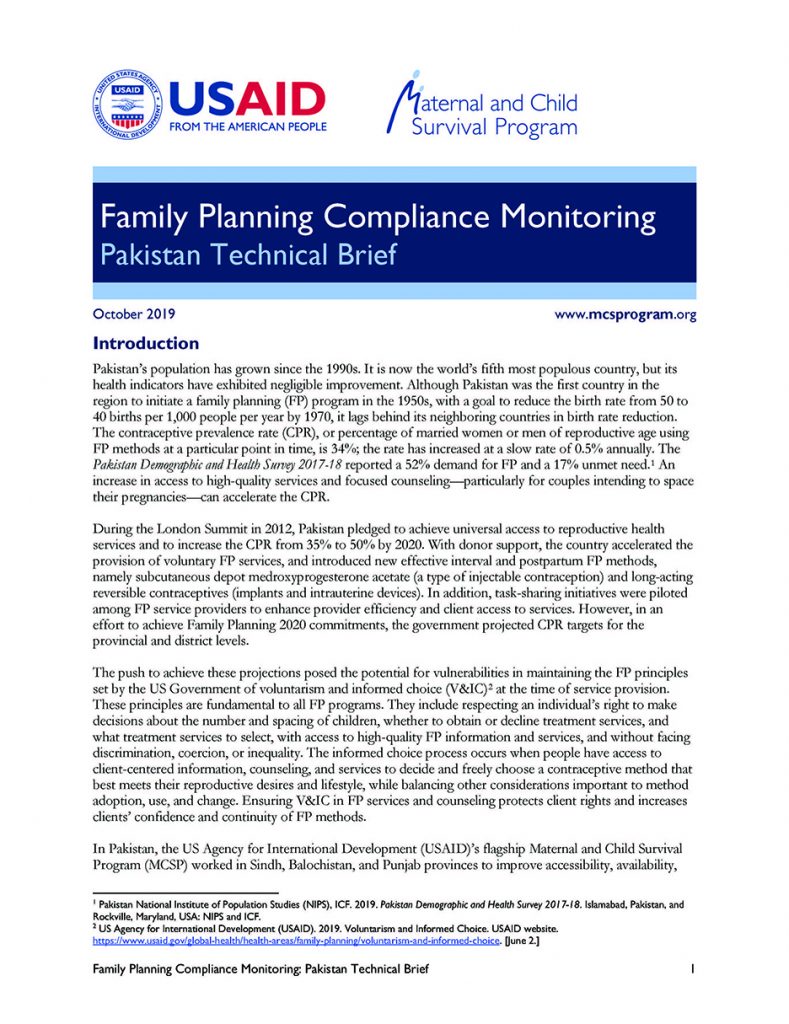
In Pakistan, MCSP worked in Sindh, Balochistan, and Punjab provinces to improve accessibility, availability, and use of family planning services, especially in underserved communities. MCSP implemented innovative approaches to strengthen the capacity of provincial departments of health and population welfare departments in providing family planning services and enforcing the principles of voluntarism and informed choice […]
Read More…
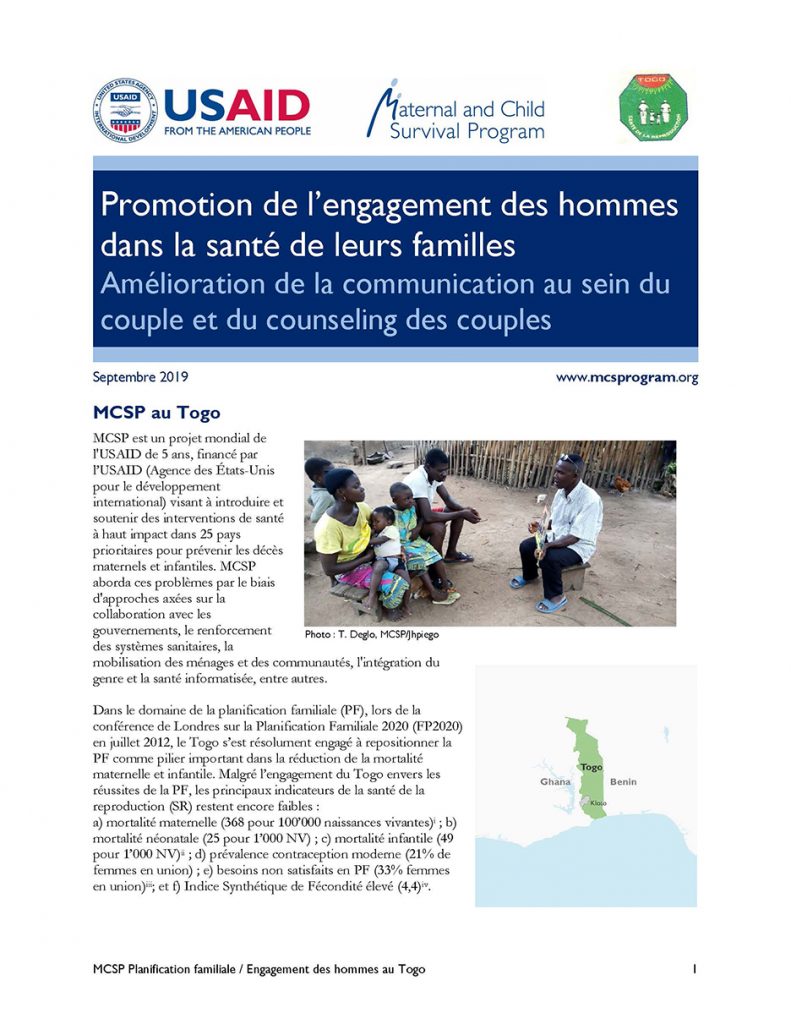
French: Au Togo, dans toutes les cultures, l’homme joue un rôle prédominant dans la prise de décisions concernant tous les aspects de la vie de leur famille. Une évaluation rapide formative de MCSP sur l’implication des hommes en SR/PF, réalisée en 2016, a révélé et confirmé une participation limitée à la santé de leur famille […]
Read More…
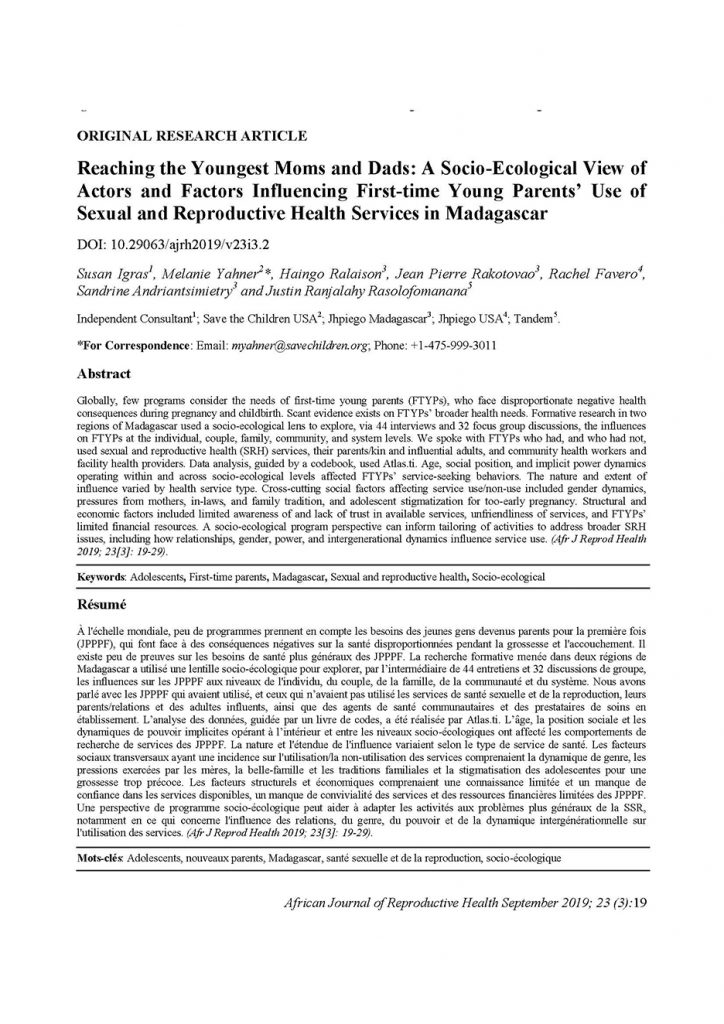
Globally, few programs consider the needs of first-time young parents (FTYPs), who face disproportionate negative health consequences during pregnancy and childbirth. Formative research in two regions of Madagascar used a socio-ecological lens to explore the influences on FTYPs at the individual, couple, family, community, and system levels. We spoke with FTYPs who had, and who […]
Read More…
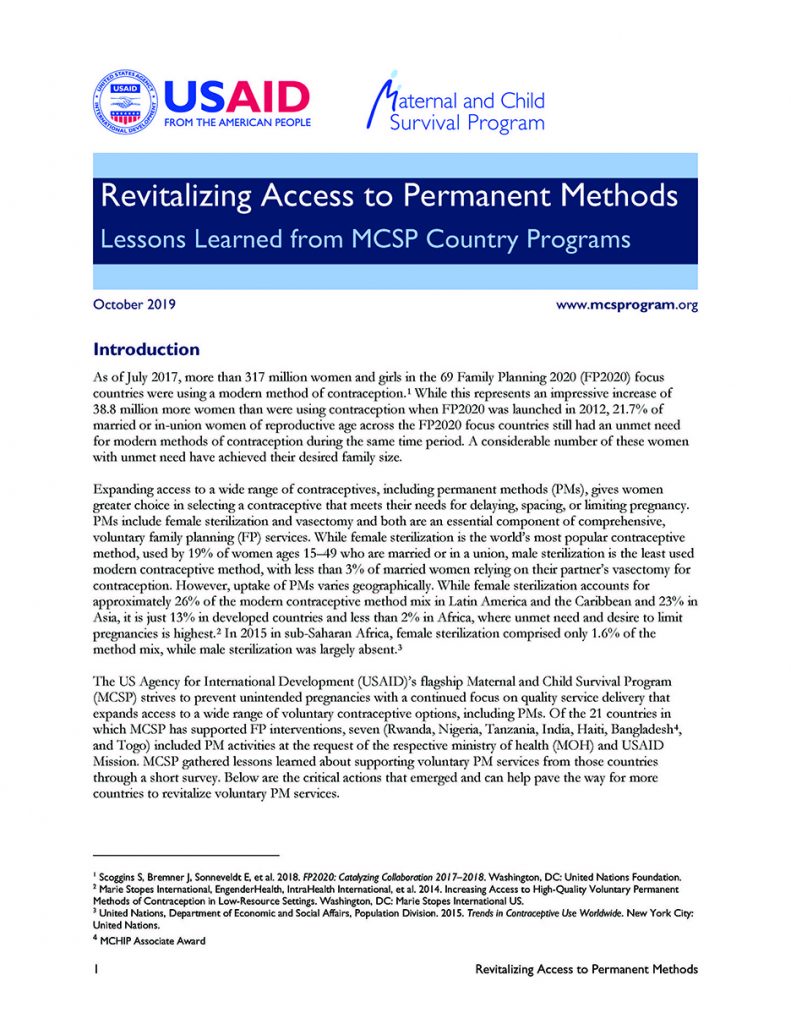
MCSP strives to prevent unintended pregnancies with a continued focus on quality service delivery that expands access to a wide range of voluntary contraceptive options, including permanent methods (PM). Of the 21 countries in which MCSP has supported FP interventions, seven (Rwanda, Nigeria, Tanzania, India, Haiti, Bangladesh, and Togo) included PM activities at the request […]
Read More…
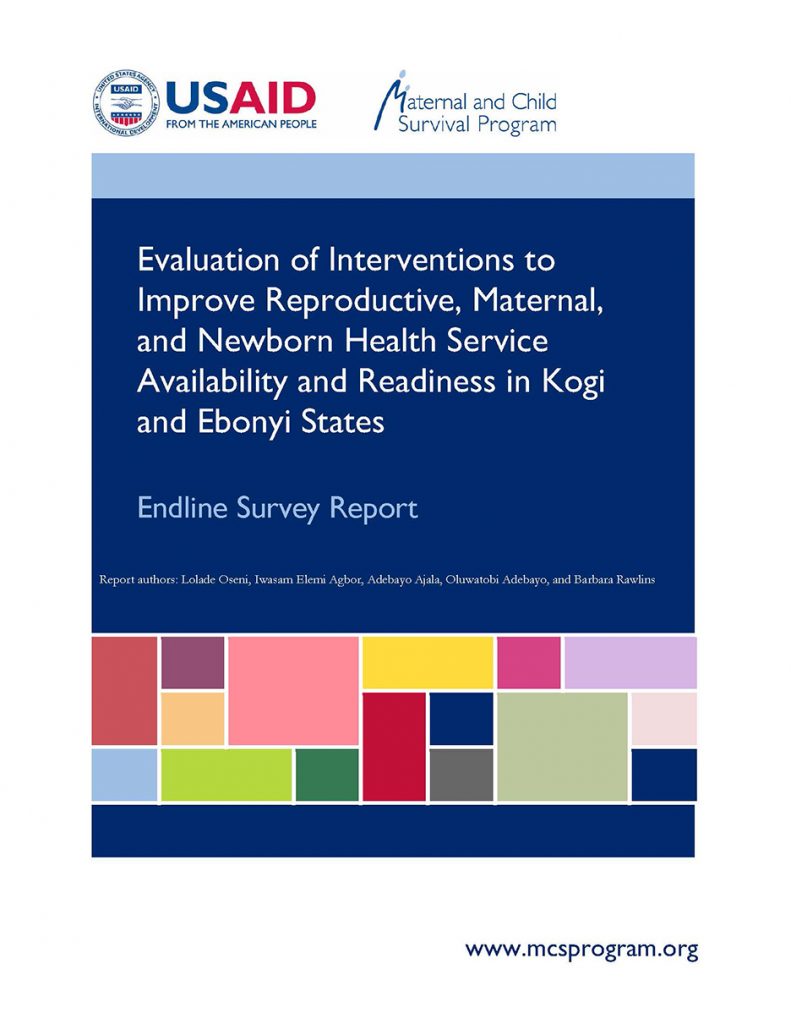
In Nigeria, MCSP focused on improving maternal and newborn health care services in Ebonyi and Kogi states by implementing high-impact interventions for better care on the day of birth when most maternal and newborn deaths occur. To determine the effect of MCSP’s RMNH quality improvement interventions in health facilities, baseline and endline quality of care […]
Read More…
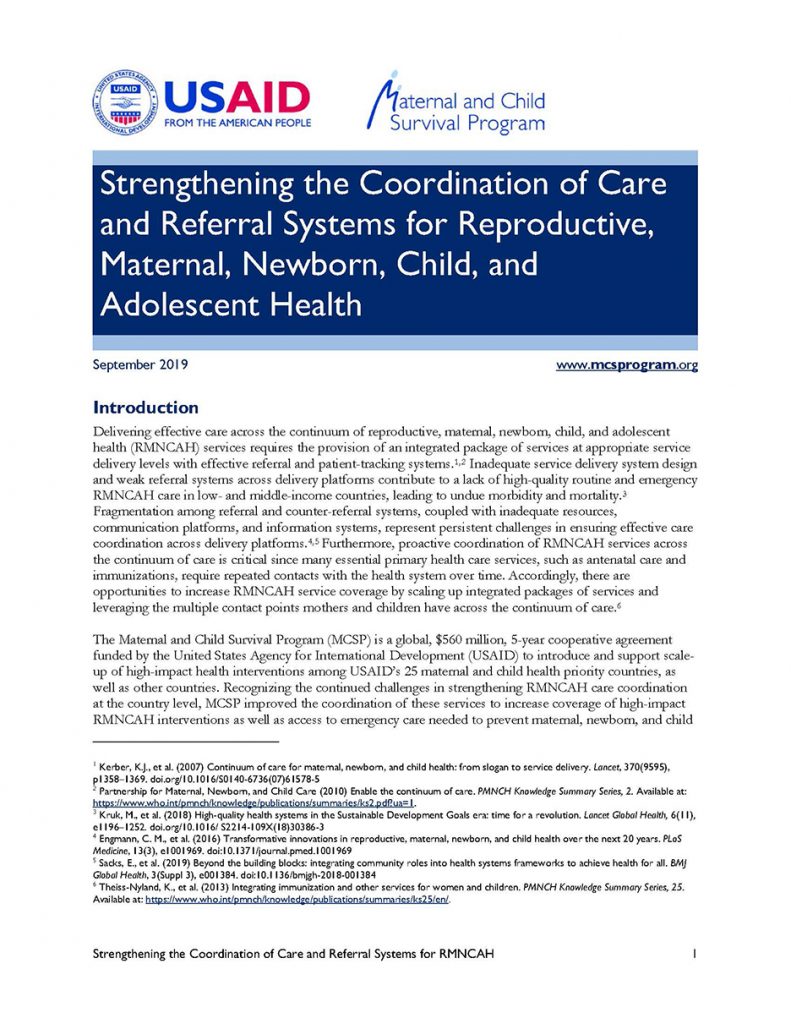
Recognizing the continued challenges in strengthening RMNCAH care coordination at the country level, MCSP improved the coordination of services to increase coverage of high-impact RMNCAH interventions as well as access to emergency care needed to prevent maternal, newborn, and child deaths. MCSP defines care coordination as a “proactive approach to bringing together care providers to […]
Read More…
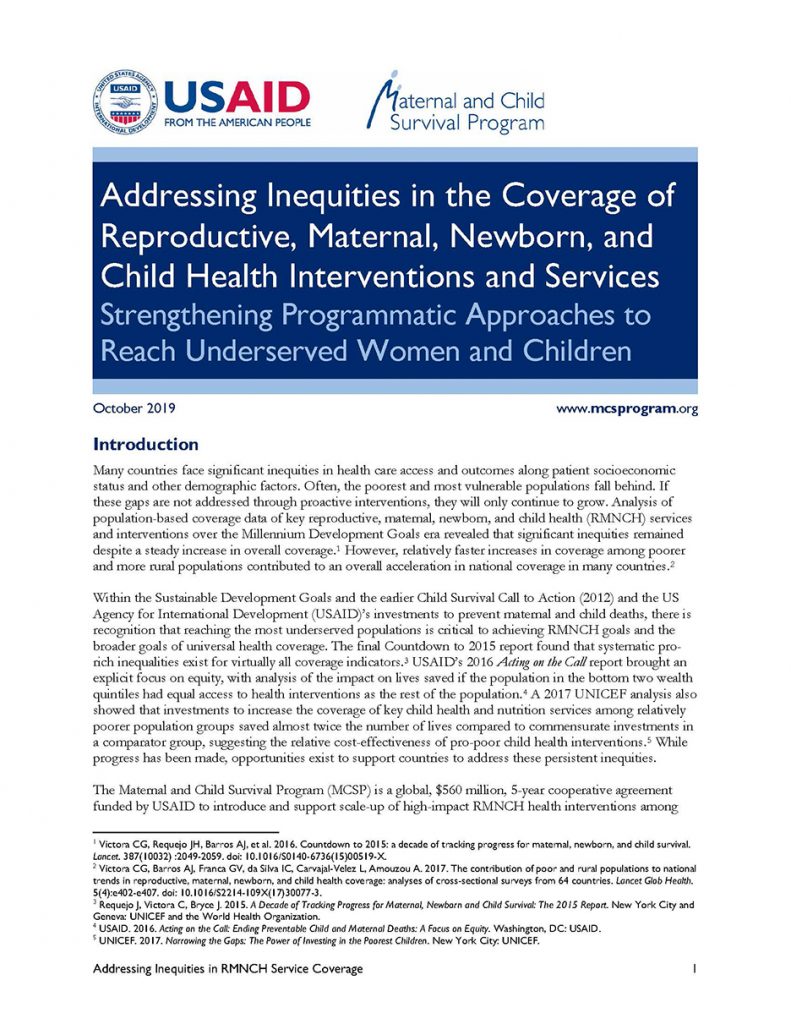
Recognizing the persistent challenges in reducing inequities in RMNCH service coverage, MCSP promoted equitable access to high-quality health care services and interventions for women, newborns, and children, and has used data to adapt programmatic approaches to address and learn from persistent equity challenges. This brief summarizes MCSP’s approach to addressing inequities, highlights key programmatic achievements, […]
Read More…










